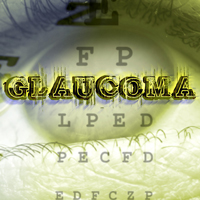Care for Your Eyes to Make Them Last for Life

Our eyes, like so much about our health, are easy to take for granted. Just like eating healthy and exercising, taking care of our vision should be a priority.
Having healthy vision can help keep us safe when we’re driving, while at work, home or school, participating in sports, or taking part in recreational activities. Fortunately, many eye problems and diseases can be treated if caught early.
January has been National Glaucoma Awareness Month. Glaucoma is the leading cause of preventable blindness and is most prevalent among Hispanics and African Americans.
According to the Glaucoma Research Foundation, glaucoma can sneak up on people since there are no symptoms and once vision is lost, it's permanent. As much as 40% of vision can be lost without a person noticing. Vision loss is caused by damage to the optic nerve – the nerve responsible for carrying images from the eye to the brain.
Currently, more than 2.7 million people in the United States over age 40 have glaucoma. The National Eye Institute projects this number will reach 4.2 million by 2030, a 58 percent increase.
As with many diseases, early detection is key. There is no cure for glaucoma. To make sure you keep seeing clearly, the New Mexico Department of Health recommend New Mexicans get a comprehensive dilated eye exam as often as your eye care professional recommends. It's the best way to find out if you need glasses or contacts, or are in the early stages of an eye disease.
The Centers for Disease Control and Prevention (CDC) recommend visiting an eye care professional if you have decreased vision, eye pain, drainage or redness of the eye, double vision, or diabetes, or if you see flashes of light, floaters (tiny specks that appear to float before your eyes), or circles (halos) around light sources.

Taking care of your eyes also may benefit your overall health. People with vision problems are more likely than those with good vision to have diabetes, poor hearing, heart problems, high blood pressure, lower back pain and stroke, as well as have increased risk for falls, accidents, and depression. Among people age 65 and older, the CDC reports 54 percent of those who are blind and 41percent of those with impaired vision say their overall health is fair or poor. Just 21 percent of older Americans without vision problems reported fair to poor health.
For more information on glaucoma, visit the Glaucoma Research Foundation website.
Media Contact
We would be happy to provide additional information about this press release. Simply contact David Morgan at 575-528-5197 (Office) or 575-649-0754 (Mobile) with your questions.
Versión en Español
En un esfuerzo para hacer que nuestros comunicados de prensa sean más accesibles, también tenemos disponibles una versión en español. Por favor presione el enlace de abajo para acceder a la traducción.

